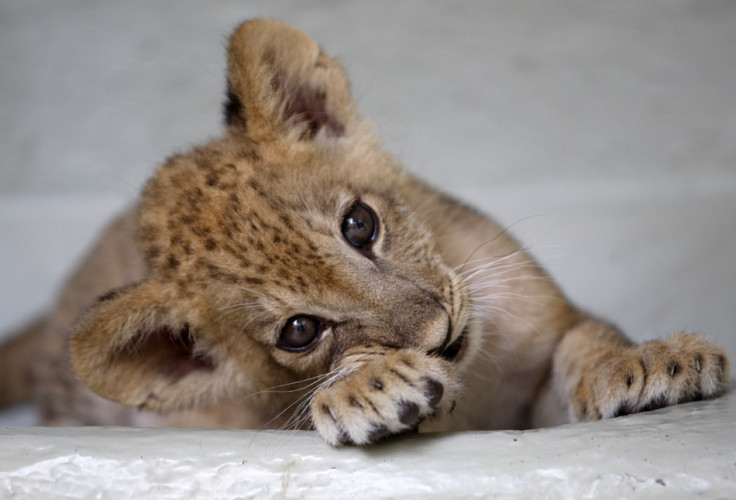'Immoral' Lion Farms in Yemen Supply Super-Rich Customers in Gulf States

The demand for exotic pets in countries such as Saudi Arabia, Qatar and the Emirates is driving up demand for breeders to produce lion cubs in countries where there is little risk of prosecution.
In Yemen, a village on the Tihama plain has become a breeding ground for caged lions.
A report by the Guardian found that breeder Hassan Bari currently has eight lions in captivity which he bought as juveniles four years ago.
The lions live in a concrete space six metres wide and all six of his lionesses are pregnant.
Bari made back the money the lions cost with the first batch of cubs and he plans to sell the next batch for over £8,000 per animal.
"I expect most of the cubs will be sold within days. There is a big demand for these animals, and often individuals will buy as many as I have on offer," he told the newspaper.
The border with Saudi Arabia means Yemen is the ideal spot for animal trafficking, with cheetahs, leopards, gazelles and monkeys all being sold to wealthy buyers.
A report by the International Fund for Animal Welfare from December last year said that combating wildlife trafficking in Yemen has become difficult because of civil unrest and lack of border control.
Devestating effect on wildlife
The country has around 200 islands and 2,500km of coastline, making it easy to enter and leave Yemen.
Speaking about the lion breeding problem, Stephen Brend, director of Born Free Foundation's project in Ethiopia, said: "[The trade is] extensive, lucrative and with a low risk of prosecution. That's probably why the trade is flourishing.
"This is having a devastating effect on wildlife populations in the region and also impacts on civil society.
"A study by the UN office on drugs and crime suggests there are strong links between the illegal shipment of guns, people, drugs and wildlife. Hence, it seems the animals are just another victim of lawlessness."
David Stanton, who heads an NGO dedicated to protecting Arabian leopards in Yemen, added: "Yemenis who are involved in the wildlife trade probably generally know that what they are doing is illegal, but I doubt that many of them feel that it is unethical or immoral.
"People in this trade look at the bottom line, so if four out of five baby cheetahs die in transit, they see this as an economic problem for them rather than as something that is inherently wrong."
© Copyright IBTimes 2025. All rights reserved.




















